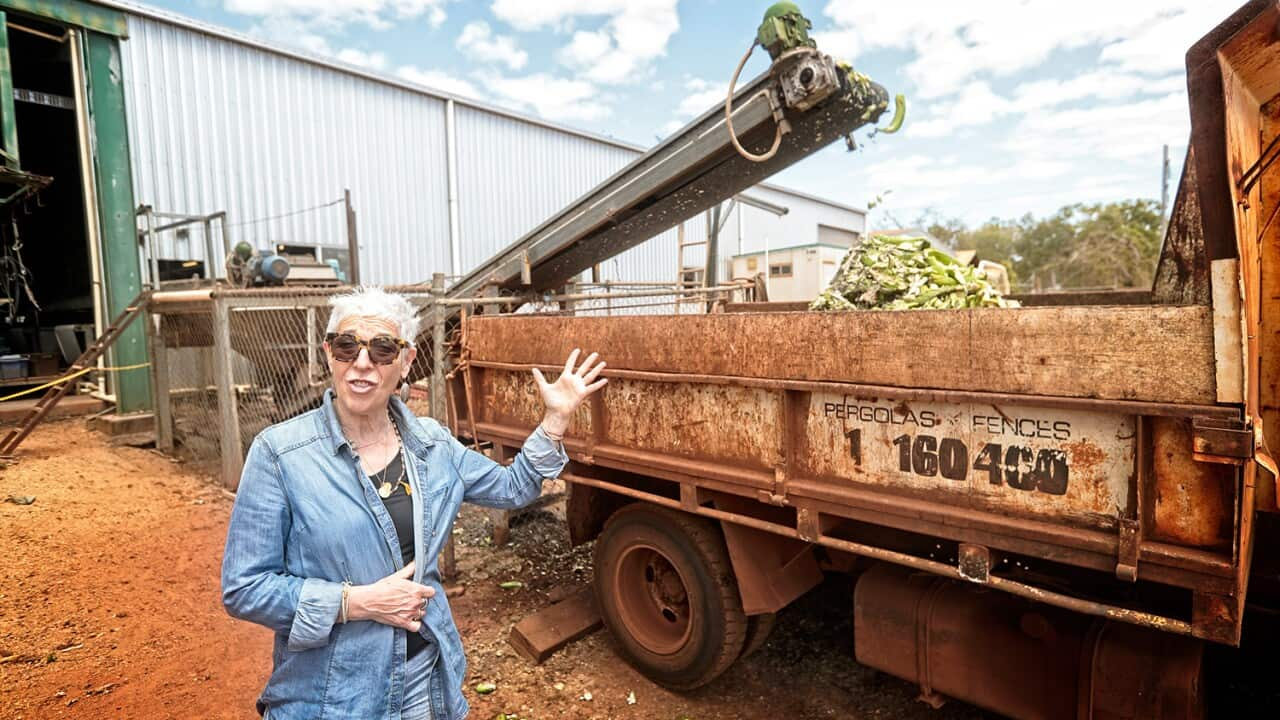At certain points during what can often feel like an uphill battle against the staggering level of food waste in Australia, it’s not unusual to ponder whether we’re actually making headway. Despite our bins and composting crusades, we’re sending of food from our kitchens to landfill every year – most of which is perfectly edible.
Coming up with workable solutions to the problem requires ingenuity, creativity and flexibility – an integrated approach, as . In teaming up with Townsville-based microbial bio-fertiliser provider , in Queensland may have hit the ‘integrated approach’ nail squarely on its head.
What if we saw food scraps not as waste, but as something else altogether – a resource?
Inside the university’s residential college commercial kitchens, you’ll find a new food waste disposal system called the Bio-Regen – a bigger, bolder version of your average in-sink garbage disposal unit. Compact and easy to use, the Bio-Regen grinds up food waste (from the plates of well-sated uni kids) to form a kind of slurry with water and added effective microbes. The slurry ferments in large tanks for 28 days and the end product is sold on to farmers as fertiliser or used in-house for JCU’s seedling farms. The circle of life continues.
More than just waste
A question posed by Adam Connell, environment manager at JCU, is at the heart of what the university hopes to achieve with the Bio-Regen system: what if we saw food scraps not as waste, but as something else altogether – a resource?
“Food waste contains high nutrient values that can be treated and turned into a value-added product, and used back on farms as a bio-fertiliser and (if it goes through the right process) a soil inoculant, helping to close the loop on the food cycle, rather than relying on unsustainable artificial fertilisers for crop growth,” Connell tells SBS. “Food waste at JCU is estimated at over 50 tonnes per year from these residencies and has a significant cost to dispose of, as well as a big carbon footprint. It seemed such a waste both financially and environmentally to send it all to landfill.”
JCU’s foray into sustainable food waste management began in 2013, when it was the first university in the world to implement the Bio-Regen technology. What followed was “a steep learning curve,” Connell explains. The system was still new, and the volumes of waste the university was producing were unprecedented. Staff soon learned the machine was no match for fibrous avocado seeds and cooked chicken bones; bulky items like these are diverted to a complimentary system known as the Groundswell.
While a slurry made from 50-150 kilograms of leftover food, water and microbes may not sound all that appetising, for new plants and soil it’s like a meal at The Ritz.
Five years, a number of upgrades to the system and a major kitchen refurb later, and the Bio-Regen system is steadily pumping out thousands of litres of bio-fertiliser annually.
“Innovative systems need time and effort to perfect, and it’s taken several years of learning and developing a close working relationship with VRM to ensure the effectiveness of the system,” says Connell. “Now we’ve got it right, it contributes to the university’s sustainability and carbon reduction goals, and demonstrates progress in waste management solutions.”
Delicious and nutritious: The Bio-Regen end product
While a slurry made from 50-150 kilograms of leftover food, water and microbes may not sound all that appetising, for new plants and soil it’s like a meal at The Ritz. It’s known as a bio-fertiliser, and it boosts the carbon, nutrient and water retention levels of the soil it’s added to. “The microbes in the product inoculate the soil and allow the natural soil microbial processes (which are often impacted by artificial fertiliser and herbicide use) to work,” Connell explains. “Previous use of the end-product on our sporting fields and community gardens has yielded excellent results in terms of plant health and growth rates, as well as a reduction in water use from irrigation. The end-product soil is so rich, VRM recommends mixing it with sand at a ratio of 1:10.”
“The microbes in the product inoculate the soil and allow the natural soil microbial processes (which are often impacted by artificial fertiliser and herbicide use) to work,” Connell explains. “Previous use of the end-product on our sporting fields and community gardens has yielded excellent results in terms of plant health and growth rates, as well as a reduction in water use from irrigation. The end-product soil is so rich, VRM recommends mixing it with sand at a ratio of 1:10.”

JCU either sells the Bio-Regen-made fertiliser to farmers or uses it on the university gardens. Source: Supplied
A fertile future
Is Bio-Regen the future of food waste management? While the system has been slow to appear in other commercial kitchens in the country, Connell thinks it has the potential to change the game forever.
“The process has already taken off in Southeast Asia, and is capable of doing the same in Australia,” he says. “The Bio-Regen system is best suited to places where medium to large volumes of food waste is produced, like commercial kitchens, hotels, restaurants or food courts. VRM has already worked with a number of local councils to successfully manage organic waste on a large scale.”
Who knows where telling your local café about Bio-Regen could lead?








